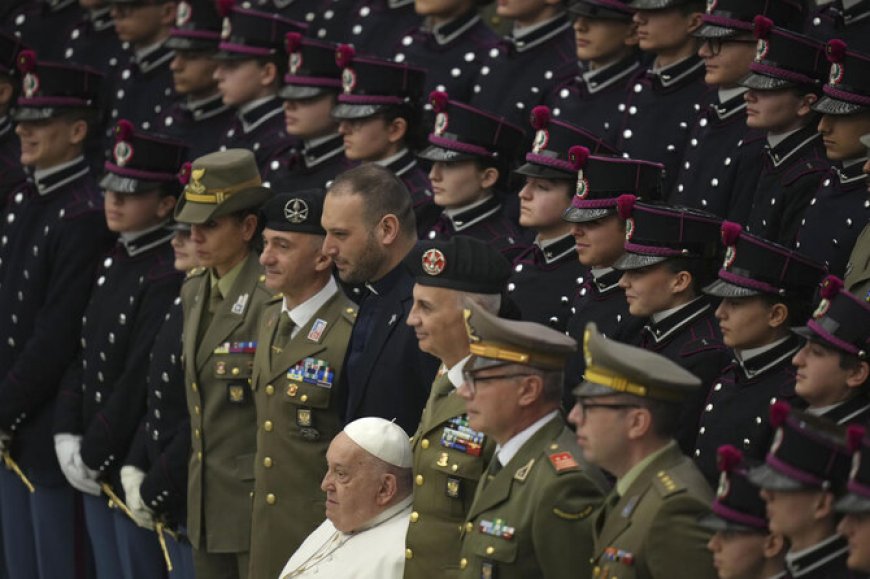The Vatican's Position on Palestinian Displacement: A Plea for Hope and Humanity
The Vatican has categorically rejected any efforts to forcibly relocate Palestinians from their homeland in the most recent development of the intricate and lamentable Palestinian-Israeli conflict. The controversial proposal of US President Donald Trump to relocate the Palestinian population from Gaza to neighboring countries such as Jordan or Egypt was sharply condemned by Secretary of State Pietro Parolin, a prominent figure within the Holy See.

The Vatican has categorically rejected any efforts to forcibly relocate Palestinians from their homeland in the most recent development of the intricate and lamentable Palestinian-Israeli conflict. The controversial proposal of US President Donald Trump to relocate the Palestinian population from Gaza to neighboring countries such as Jordan or Egypt was sharply condemned by Secretary of State Pietro Parolin, a prominent figure within the Holy See.
This call for the preservation of Palestinian land is issued in the context of heightened tensions and conflicting international perspectives regarding the long-standing humanitarian crisis in the region.
Speaking at a meeting between Italy and the Vatican, Parolin unambiguously declared that "the Palestinian population must remain on its land." Opposing forced deportations and advocating for the dignity and rights of displaced peoples are among the fundamental principles that the Vatican has upheld in its diplomatic and moral engagement with global conflicts. This statement reflects these principles.
Parolin contends that such a proposition would not only exacerbate regional tensions, but it would also be "irrational" in light of the historical and geopolitical intricacies of the region. Jordan and Egypt, two neighboring countries that are frequently referenced as potential destinations for displaced Palestinians, have consistently rejected the notion of accepting the migrants.
The Vatican's criticism follows a broader international discourse regarding Gaza's future, a region that has been devastated by years of political instability, poverty, and conflict. Trump's proposal, which has been met with widespread criticism from global experts, aims to resolve the Gaza crisis by forcibly displacing more than two million individuals from their homes and relocating them to neighboring countries.
Experts contend that this concept would not only contravene international law but also worsen an already precarious situation in the Middle East. Benjamin Netanyahu, the Israeli Prime Minister, has controversially characterized the plan as "revolutionary" in response to these developments, presenting it as a novel solution to the intractable problem of Palestinian displacement.
Nevertheless, the Vatican's alternative perspective is centered on a two-state solution, which has been a stance of the Holy See for a long time. The notion that a peaceful, enduring resolution to the Palestinian-Israeli conflict is not found in mass expulsions, but in the recognition of two sovereign states, Israel and Palestine, coexisting in peace, is further emphasized by Parolin's comments.
He is of the opinion that this is not only the most equitable solution, but the only one that can provide genuine hope to the Palestinian population, which has been subjected to decades of denial of their fundamental rights, displacement, and hardship.
It is crucial to acknowledge that the Vatican has consistently advocated for the rights of refugees and displaced peoples, frequently in opposition to populist governments that have attempted to close borders or deport those seeking refuge. Pope Francis, for example, has consistently condemned policies that violate the dignity and protection of asylum applicants.
He denounced President Trump's mass deportation plan, which targets undocumented migrants within the United States, this week, describing it as a "major crisis" that "damages the dignity" of those who are fleeing desperate conditions. Pope Francis has maintained his conviction that the Church must serve as a voice of compassion, advocating for the marginalized and oppressed, in his critique of these policies.
This profound reminder of the moral obligation to treat individuals with dignity and humanity, irrespective of their nationality or immigration status, is reflected in the Vatican's vocal opposition to these severe proposals. It is also an implicit critique of the political maneuvers that frequently disregard the genuine human consequences of geopolitical decisions.
The Vatican's rejection of mass displacement and its advocacy for a two-state solution provide a glimmer of optimism in an otherwise bleak situation as the world observes the situation unfold. The Church's stance on Palestinian sovereignty serves as a call for a solution rooted in justice, respect for human rights, and the belief that no one should be forced to forsake their home, despite the fact that the road to peace in the Middle East remains fraught with challenges. It is a poignant reminder that the plight of a people, who have endured decades of suffering, is at the core of the conflict and deserves to live in peace and dignity on their own land.













































